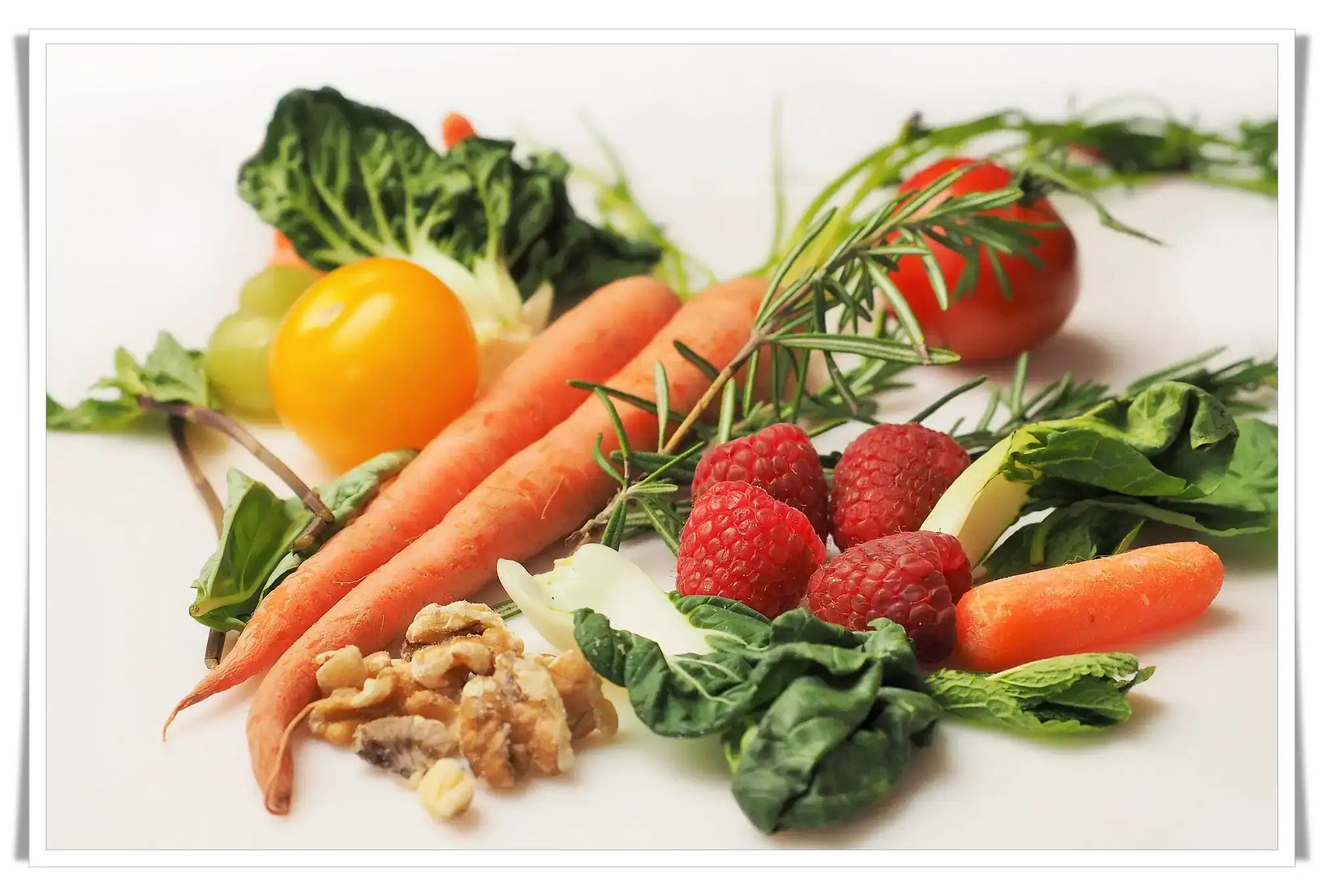Introduction
I've always been fascinated by the less-trodden paths of natural remedies, and today, I'm excited to introduce you to the remarkable world of Donkey milk. Despite its recent emergence in European markets, Donkey milk has centuries-old roots, offering many health and beauty benefits. Join me as we explore Donkey milk's intriguing history, nutritional value, and six proven benefits.
Empower Your Health Journey – Explore My Free Apps for a Vibrant, Healthier Lifestyle Today!
Historical Significance of Donkey Milk
Donkey milk's journey through history is as fascinating as it is ancient. This natural elixir has been a part of human culture and health for millennia, transcending geographical and temporal boundaries. The ancient Egyptians, known for their advanced understanding of beauty and medicine, were among the earliest to recognize the remarkable benefits of Donkey milk. The legendary Queen of Egypt, Cleopatra, is perhaps the most famous proponent of this natural wonder. She is said to have indulged in daily baths filled with Donkey milk, a practice she believed was essential for maintaining her renowned beauty. These baths were not just a symbol of luxury but also a testament to the milk’s nurturing and rejuvenating properties on the skin.

The use of Donkey milk extended beyond the realm of beauty. Hippocrates, the revered Greek physician often called the father of medicine, harnessed the healing powers of Donkey milk to treat an array of ailments. His use of Donkey milk marked one of the earliest instances of its medicinal application, setting a precedent for future generations. Hippocrates prescribed Donkey milk for a variety of conditions ranging from wound healing to immune system support, highlighting its versatility as a health remedy.
In addition to Cleopatra and Hippocrates, many other cultures and civilizations have embraced Donkey milk for its health benefits. In various parts of Africa and India, Donkey milk was used in traditional folk medicine, especially for treating respiratory ailments like whooping cough. Its use in these diverse medicinal practices showcases its widespread recognition and respect across different cultures.
This rich history underlines Donkey milk's enduring appeal and effectiveness. From ancient Egypt's palaces to Hippocrates's writings, Donkey milk has been revered for its ability to enhance beauty, heal, and nourish. Its legacy in historical texts and practices continues to influence modern health and skincare trends, making it more than just a relic of the past but a living testament to nature's bounty.
Nutritional Profile of Donkey Milk
Donkey milk often heralded as a 'miracle elixir', is indeed a nutritional marvel. Its composition is remarkably similar to human breast milk, not just in terms of pH levels, which makes it gentle and compatible with human digestive systems, but also in its comprehensive nutritional profile. This similarity is particularly noteworthy because it implies that Donkey milk can provide nutrients in a form that is readily absorbable and beneficial to humans, making it an excellent alternative for those seeking natural and wholesome nutrition.
One of the standout features of Donkey milk is its rich content of essential vitamins. It is an excellent source of Vitamin C, known for its immune-boosting properties, and B vitamins, including Thiamine and Riboflavin, which are crucial for energy metabolism and overall cell health. These vitamins play a vital role in maintaining bodily functions and contribute to the overall well-being of individuals.

In addition to vitamins, Donkey milk is also laden with a variety of proteins that are fundamental to human health. These proteins are not only necessary for building and repairing tissues but also play a vital role in the growth and development of the body. The proteins found in Donkey milk are easily digestible, making them particularly beneficial for children, the elderly, and those with sensitive digestive systems.
The mineral content in Donkey milk further adds to its nutritional value. It is a good source of calcium, vital for bone health and strength, and phosphorus, which works in tandem with calcium to enhance bone density. Additionally, it contains significant levels of potassium, necessary for maintaining healthy blood pressure levels, and other minerals that contribute to the proper functioning of the body.
A single glass of Donkey milk, which roughly equates to 250 ml, can be a substantial contribution to daily nutritional needs. It provides about 110 kilocalories, 6 grams of protein, 6 grams of fat, and 10 grams of carbohydrates, alongside significant percentages of the Recommended Daily Allowance (RDA) for various vitamins and minerals. This balanced combination of macronutrients and micronutrients justifies its classification as a superfood.
Six Proven Benefits of Donkey Milk
Anti-Aging Properties
Donkey milk is celebrated as a natural fountain of youth, primarily due to its rich composition of essential fatty acids. These fatty acids play a critical role in maintaining skin health, offering a range of benefits that particularly target the signs of aging. When it comes to combating wrinkles and promoting a youthful complexion, Donkey milk stands out as an exceptional natural remedy.
The essential fatty acids in Donkey milk, including omega-3 and omega-6, contribute significantly to skin hydration and elasticity. They form a natural barrier on the skin, locking in moisture and protecting it from environmental stressors that can lead to premature ageing. This hydration is key in smoothing fine lines and wrinkles, giving the skin a plumper, more youthful appearance.
Furthermore, these fatty acids are vital in the regeneration of skin cells. They aid in repairing damaged skin tissues and promote the growth of new cells, which is crucial for maintaining a vibrant, youthful skin tone. This cell renewal property is particularly beneficial for mature skin, helping to reduce the visibility of age spots and other signs of ageing.

Donkey milk also contains antioxidants, which are essential in the fight against ageing. These antioxidants combat free radicals – unstable atoms that can cause damage to skin cells and accelerate the ageing process. By neutralizing these harmful free radicals, Donkey milk helps to protect the skin from oxidative stress, thus preventing the formation of wrinkles and maintaining the skin’s natural youthfulness.
In addition to its internal benefits when consumed, Donkey milk is also used in various topical skincare products. Its inclusion in creams, serums, and facial masks allows direct application of its anti-aging properties to the skin. These products can aid in skin rejuvenation, improve skin texture, and provide a radiant, youthful glow.
Metabolism Regulation
The effectiveness of Donkey milk in regulating metabolism, particularly concerning lipids and carbohydrates, is a subject of increasing interest in nutritional science. Various studies have illuminated its role in this vital biological process, making it a noteworthy addition to diets focused on metabolic health.
Lipid metabolism, which involves the breakdown and utilization of fats in the body, is critical for maintaining overall health. Donkey milk contains a unique composition of fatty acids that are believed to contribute positively to this process. These fatty acids can help in the efficient breakdown and absorption of fats, which is crucial for maintaining healthy cholesterol levels and preventing conditions like obesity and heart disease. The balanced lipid profile of Donkey milk, including its lower levels of saturated fats compared to other dairy products, makes it particularly beneficial for those looking to manage their lipid metabolism effectively.

When it comes to carbohydrate metabolism, Donkey milk shows promising potential as well. Carbohydrates are a primary source of energy, and their proper metabolism is essential for maintaining energy levels and preventing diabetes and other metabolic disorders. The natural sugars present in Donkey milk, such as lactose, are broken down and absorbed in a way that maintains a healthy balance of blood glucose levels. This is particularly beneficial for maintaining steady energy levels throughout the day.
Furthermore, the presence of other nutrients in Donkey milk, such as certain vitamins and minerals, can also aid in the efficient metabolism of both lipids and carbohydrates. These nutrients facilitate various enzymatic reactions in the body, ensuring that fats and carbohydrates are metabolized effectively and contributing to overall metabolic health.
Antimicrobial Benefits
Donkey milk is increasingly recognized for its potent antimicrobial properties, primarily due to its rich composition of specific proteins like lysozyme and lactoferrin. These proteins play a crucial role in the milk’s ability to combat a wide range of microbial infections, making it not only a nutritious beverage but also a natural ally in promoting health and wellness.
Lysozyme, a key protein found in Donkey milk, is known for its strong antibacterial activity. It works by attacking the cell walls of bacteria, leading to their destruction. This action is particularly effective against certain pathogenic bacteria, making lysozyme an important component in the milk's antimicrobial arsenal. Its presence in Donkey milk can help prevent bacterial infections and boost the body's natural defence mechanisms.

Lactoferrin, another significant protein in Donkey milk, is renowned for its broad-spectrum antimicrobial properties. It can bind iron, a mineral essential for bacterial growth. By sequestering iron, lactoferrin effectively starves harmful bacteria of a crucial nutrient, inhibiting their growth and proliferation. Additionally, lactoferrin has antiviral properties, protecting against various viral infections. This protein is also involved in modulating the immune response, enhancing the body’s ability to fight off pathogens.
The combination of lysozyme and lactoferrin in Donkey milk creates a powerful antimicrobial duo. Their synergistic action not only helps in directly combating microbes but also strengthens the immune system, making the body more resilient against infections. This is particularly beneficial for individuals with weakened immune systems or those looking for natural ways to boost their immunity.
Immune System Booster Properties
Donkey milk is increasingly being hailed as a natural booster for the immune system, thanks to its unique blend of nutrients and bioactive compounds. This natural beverage is equipped with elements that not only fortify the body against various diseases but also enhance the overall functioning of the immune system.
One of the key components in Donkey milk contributing to its immune-boosting properties is lactoferrin. Lactoferrin is a multifunctional protein known for its ability to bind and sequester iron, which, in turn, inhibits the growth of iron-dependent bacteria in the body. Moreover, lactoferrin possesses anti-inflammatory properties, which are crucial in preventing and mitigating inflammatory responses that can be harmful to the body. By modulating the immune response, lactoferrin plays a vital role in maintaining the body's defence mechanisms.
In addition to lactoferrin, Donkey milk is rich in immunoglobulins, which are antibodies that play a critical role in identifying and neutralizing pathogens like bacteria and viruses. The presence of these immunoglobulins in Donkey milk enhances the body's ability to fight off infections, making it a valuable dietary component for boosting immunity.
Another significant aspect of Donkey milk's immune-boosting properties is its high lysozyme content. Lysozyme is an enzyme with potent antibacterial activity, which helps protect the body from bacterial infections by breaking down the bacterial cell wall. This action of lysozyme not only helps in preventing infections but also supports the body’s natural healing processes.
Furthermore, Donkey milk contains various vitamins and minerals, such as Vitamin C and Zinc, that are essential for a healthy immune system. Vitamin C, a well-known antioxidant, helps in combating oxidative stress and strengthens the body's natural defences. Zinc is vital for the development and function of many immune cells, playing an integral role in the immune response.
Ideal for Children - Hypoallergenic Properties
Donkey milk is increasingly being recognized as a safe and nutritious option for children, especially infants, due to its hypoallergenic properties. This characteristic makes it an ideal alternative for young ones who may be sensitive to other types of milk, ensuring they receive essential nutrition without the risk of allergic reactions.
The hypoallergenic nature of Donkey milk is largely attributed to its protein profile, which is quite similar to human breast milk. The proteins in Donkey milk are present in a form that is less likely to trigger allergic responses, making it well-tolerated by most infants. This compatibility is particularly important for infants with sensitive digestive systems or those prone to allergies, providing a source of nutrition that is gentle and easy to digest.

Moreover, this milk contains lower levels of casein compared to cow's milk. Casein is a milk protein that is a common allergen for many children. The reduced casein content in Donkey milk minimizes the likelihood of allergic reactions, making it a safer option for infants and young children with milk protein allergies.
In addition to its hypoallergenic properties, is also rich in essential nutrients vital for the growth and development of children. It provides a balanced mix of vitamins, minerals, and fatty acids necessary for healthy physical and cognitive development. The presence of omega-3 and omega-6 fatty acids in Donkey milk is particularly beneficial for brain development and visual acuity in infants.
It is a close resemblance to human breast milk in terms of its nutritional composition and pH making it a suitable supplemental or alternative feeding option for infants. It can provide the necessary nutrients in cases where breastfeeding is not possible or needs to be supplemented.
Potential Benefits of DM for Diabetics
The potential benefits of DM for individuals with diabetes are garnering interest in the medical and nutritional communities, thanks to emerging research in this area. Preliminary studies suggest that milk may play a significant role in improving insulin tolerance, offering a promising avenue for diabetes management.
Diabetes, particularly type 2 diabetes, is characterized by the body's inability to effectively use insulin, leading to elevated blood glucose levels. The management of this condition often involves dietary adjustments to help regulate these levels. This milk, with its unique nutritional profile, is emerging as a potential dietary supplement for enhancing insulin sensitivity.
One of the key factors contributing to the beneficial effects of milk on insulin tolerance is its protein composition. Donkey milk contains a higher proportion of whey proteins compared to other types of milk. These proteins, particularly alpha-lactalbumin and beta-lactoglobulin, have been observed to have insulinotropic effects, meaning they may stimulate the secretion of insulin. This property could be particularly beneficial in managing postprandial (after-meal) blood glucose levels.
Moreover, the low-fat content and the presence of bioactive peptides in Donkey milk are also thought to contribute to its potential anti-diabetic properties. These peptides, formed during the digestion of milk proteins, have been shown to exhibit various biological activities, including the modulation of insulin release and glucose metabolism. They may help in improving the body's response to insulin, thereby aiding in the better management of blood glucose levels.
Another aspect of this milk that might benefit diabetic patients is its low glycemic index. The glycemic index is a measure of how quickly foods raise blood sugar levels. Foods with a low glycemic index are beneficial for diabetics as they cause a slower, more gradual increase in blood sugar levels. Including DM in the diet could, therefore, help in maintaining stable blood glucose levels.
How to Use DM
Donkey milk’s versatility extends beyond its consumption as a beverage. It can be integrated into daily routines both internally and externally, offering numerous benefits in various forms. Here’s a more detailed guide on how to use Donkey milk to harness its full potential.
Internal Use
- Direct Consumption: The simplest way to enjoy the benefits of Donkey milk is by drinking it directly. Its gentle composition makes it suitable for daily consumption. However, it is essential to ensure that the milk is pasteurized, especially when given to children, to eliminate any potential pathogens.
- Lyophilized Powder: For those who cannot access fresh Donkey milk, lyophilized (freeze-dried) powder is an excellent alternative. This form retains most of the nutritional properties of fresh milk and can be easily reconstituted by adding water. It is convenient for storage and has a longer shelf life, making it accessible to a broader audience. This powdered form can be used in smoothies, cereals, or other recipes where milk is typically used.
- Dietary Supplements: Donkey milk is also available in the form of dietary supplements, often in capsules or tablets. These supplements are designed to provide the nutritional benefits of Donkey milk for those who may need it in a more concentrated or convenient form.
External Use
- Skincare Creams and Lotions: One of the most popular external uses of Donkey milk is in skincare products. Its hydrating and anti-ageing properties make it an excellent ingredient for creams and lotions. These products can help moisturize the skin, reduce the appearance of wrinkles, and provide a youthful glow.
- Facial Masks: Donkey milk is also used in facial masks for its soothing and rejuvenating properties. These masks can help hydrate the skin, improving skin elasticity, and reducing inflammation or irritation.
- Dermatological Products: Due to its gentle and soothing properties, Donkey milk is incorporated into various dermatological products. It's found in shampoos, conditioners, and creams designed to alleviate skin conditions such as eczema, psoriasis, and dermatitis.
- Soap Bars: Donkey milk soap bars are another way to incorporate this ingredient into your daily routine. These soaps are known for their ability to cleanse gently without stripping the skin of its natural oils, making them suitable for sensitive skin types.

Tips for Using Donkey Milk
- Quality Check: Always ensure that you are using high-quality Donkey milk products, whether for internal or external use. Check for purity and the absence of additives, especially if you have sensitive skin or dietary restrictions.
- Patch Test for Topical Products: If you are using Donkey milk-based skin products for the first time, it’s advisable to do a patch test to ensure there’s no allergic reaction.
- Consultation for Dietary Use: If you plan to include Donkey milk in your diet or as a supplement, particularly for children, the elderly, or if you have a health condition, it’s wise to consult with a healthcare professional first.
In conclusion, Donkey milk offers a range of uses that can be adapted to different needs and preferences. Whether consumed as a nutritious drink, used as a dietary supplement, or applied as a part of your skincare routine, Donkey milk can provide a natural, gentle, and effective solution for health and beauty.
Contraindications and Considerations for Donkey Milk
While the myriad benefits of Donkey milk make it a highly sought-after natural product, it is crucial to acknowledge certain contraindications and considerations to ensure its safe consumption. Understanding these aspects is vital, particularly for vulnerable groups like infants, the elderly, and individuals with specific dietary sensitivities or conditions.
Importance of Pasteurization
One of the primary considerations for Donkey milk consumption is the process of pasteurization. Pasteurization is the method of heating milk to a specific temperature to kill harmful bacteria without altering the nutritional content and benefits of the milk. This process is particularly crucial for infants and the elderly, who often have more delicate or less robust immune systems. Consuming unpasteurized Donkey milk could pose health risks, including exposure to harmful microorganisms that can cause illnesses. Therefore, ensuring that Donkey milk is properly pasteurized before consumption is essential for these sensitive groups.
Lactose Intolerance Considerations
Another key consideration is lactose intolerance. Donkey milk, like other types of milk, contains lactose, a type of sugar naturally found in milk and dairy products. Individuals who are lactose intolerant lack the enzyme lactase, which is needed to digest lactose properly. Consuming milk products can lead to discomfort and digestive issues such as bloating, gas, and diarrhoea for these individuals. Therefore, those with lactose intolerance should approach the consumption of Donkey milk with caution. It is advisable to start with small quantities to assess tolerance or seek lactose-free alternatives if necessary.

Availability and Accessibility
Additionally, the availability and accessibility of Donkey milk can be a consideration for many. Being a niche product, Donkey milk is not as readily available as cow's or goat's milk. This limited availability can make it a more expensive option, potentially affecting its accessibility for regular consumption.
Allergic Reactions
While Donkey milk is known for its hypoallergenic properties, there is still a possibility, albeit small, of allergic reactions in some individuals. As with introducing any new food item into your diet, it is advisable to start with a small amount to monitor for any adverse reactions.
Sustainable and Ethical Considerations
Lastly, the ethical and sustainable aspects of Donkey milk production should also be considered. Prospective consumers should be mindful of how the milk is sourced, ensuring that it comes from farms where donkeys are treated humanely and ethically.
Scientific Study "Donkey Milk: An Overview on Functionality, Technology and Future Prospects"
Authors: Maria Aspri, Nicole Economou, and Photis Papademas
Institution: Department of Agricultural Sciences, Biotechnology and Food Science, Cyprus University of Technology, Limassol, Cyprus.
The study concludes by asserting the need for further research into Donkey milk, exploring its potential in creating value-added functional dairy products. The unique properties of Donkey milk, such as its hypoallergenic nature and nutritional similarity to human milk, make it a promising alternative for sensitive populations.
This detailed study offers insightful perspectives on the functionality, technology, and future prospects of Donkey milk, outlining its historical significance, production processes, chemical and nutritional composition, and potential health benefits.
Relevant Table of Resources
| Source | Topic | Link |
|---|---|---|
| NCBI | Donkey Milk in Infant Formula | Read Here |
| ResearchGate | Overview of Donkey Milk | Read Here |
| PubMed | Supplement in Infant Formula | Read Here |
| PubMed | Hypoallergenic Properties | Read Here |
FAQs
Q: Is Donkey milk safe for daily consumption?
A: Yes, when pasteurized, it's safe and beneficial for daily consumption.
Q: Can Donkey milk be used as a skincare product?
A: Absolutely! Its hydrating and anti-ageing properties make it ideal for skincare formulations.
Conclusion
In the realm of natural remedies, Donkey milk stands out as a versatile and potent solution. Whether for internal health benefits or external beauty applications, Donkey milk offers something for everyone. Its rich history and proven benefits make it a fascinating addition to both your diet and skincare routine.
Call to Action
Have you tried Donkey milk, or are you curious about integrating it into your diet or skincare routine? We would love to hear from you! Share your experiences, thoughts, or any questions you might have in the comments section below. Whether it's about the taste, health benefits, or the ways you've used it, your insights are valuable to us and our community.
If you haven't yet experienced the wonders of Donkey milk, we encourage you to give it a try. Whether you're looking for natural skincare options, seeking alternatives due to dietary intolerances, or simply curious about this ancient remedy, Donkey milk could be just what you need.
And if you’re still on the fence about it, let us know what's holding you back. Is it the availability, the price, or perhaps some concerns about its taste or efficacy? Your feedback is crucial in helping us understand and address the common concerns and interests regarding Donkey milk.
Also, remember to check out our related articles and resources for more information. Dive into the depths of Ayurvedic practices in our article “The Top 8 Potent Spices Used in Ayurveda Remedies”, and don’t miss our informative YouTube video on the "Feast & Famine Unlocking Intermittent Fasting's Superpowers". These resources will provide you with a broader understanding of natural health remedies and how Donkey milk fits into this holistic approach.
So, join the conversation! Leave a comment, share your stories, or ask a question. Let's explore the fascinating world of Donkey milk together and unlock the secrets of this ancient superfood!





Honestly, I read something about donkey milk, but it was vague, and I didn’t pay attention to it. but now in your article, I found out how beneficial it is, but the problem is that it is not really found. I tried to find online who is selling, a farm in the U.K., but little information. Do you know something?
I do believe all the ideas youve presented for your post They are really convincing and will certainly work Nonetheless the posts are too short for novices May just you please lengthen them a little from subsequent time Thanks for the post
Hi my loved one I wish to say that this post is amazing nice written and include approximately all vital infos Id like to peer more posts like this
I do agree with all the ideas you have introduced on your post They are very convincing and will definitely work Still the posts are very short for newbies May just you please prolong them a little from subsequent time Thank you for the post
It was great seeing how much work you put into it. Even though the design is nice and the writing is stylish, you seem to be having trouble with it. I think you should really try sending the next article. I’ll definitely be back for more of the same if you protect this hike.
It was great seeing how much work you put into it. The picture is nice, and your writing style is stylish, but you seem to be worrying that you should be presenting the next article. I’ll almost certainly be back to read more of your work if you take care of this hike.
It was great seeing how much work you put into it. Even though the design is nice and the writing is stylish, you seem to be having trouble with it. I think you should really try sending the next article. I’ll definitely be back for more of the same if you protect this hike.
I do agree with all the ideas you have introduced on your post They are very convincing and will definitely work Still the posts are very short for newbies May just you please prolong them a little from subsequent time Thank you for the post
It was great seeing how much work you put into it. Even though the design is nice and the writing is stylish, you seem to be having trouble with it. I think you should really try sending the next article. I’ll definitely be back for more of the same if you protect this hike.
Attractive section of content I just stumbled upon your blog and in accession capital to assert that I get actually enjoyed account your blog posts Anyway I will be subscribing to your augment and even I achievement you access consistently fast
Hi there, I thought I saw you visited my website, so I came back to say hello. I suppose I could use some of your ideas as I’m trying to find out how to improve my website.
certainly like your website but you need to take a look at the spelling on quite a few of your posts Many of them are rife with spelling problems and I find it very troublesome to inform the reality nevertheless I will definitely come back again
Hi my loved one I wish to say that this post is amazing nice written and include approximately all vital infos Id like to peer more posts like this
My brother suggested I might like this website He was totally right This post actually made my day You cannt imagine just how much time I had spent for this information Thanks
Wow, marvelous blog layout! How long have you been blogging for?
you make running a blog glance easy. The whole glance of your site is excellent, as smartly as the content material!
You can see similar: sklep internetowy and here sklep online
Wow amazing blog layout How long have you been blogging for you made blogging look easy The overall look of your web site is magnificent as well as the content
Hello! Quick question that’s totally off topic. Do you know how to make your site mobile friendly?
My weblog looks weird when viewing from my iphone. I’m trying
to find a theme or plugin that might be able to fix this
issue. If you have any suggestions, please share. Many thanks!
I saw similar here: najlepszy sklep and also here: e-commerce
Somebody essentially lend a hand to make significantly posts I might state That is the very first time I frequented your web page and up to now I surprised with the research you made to create this particular put up amazing Excellent job